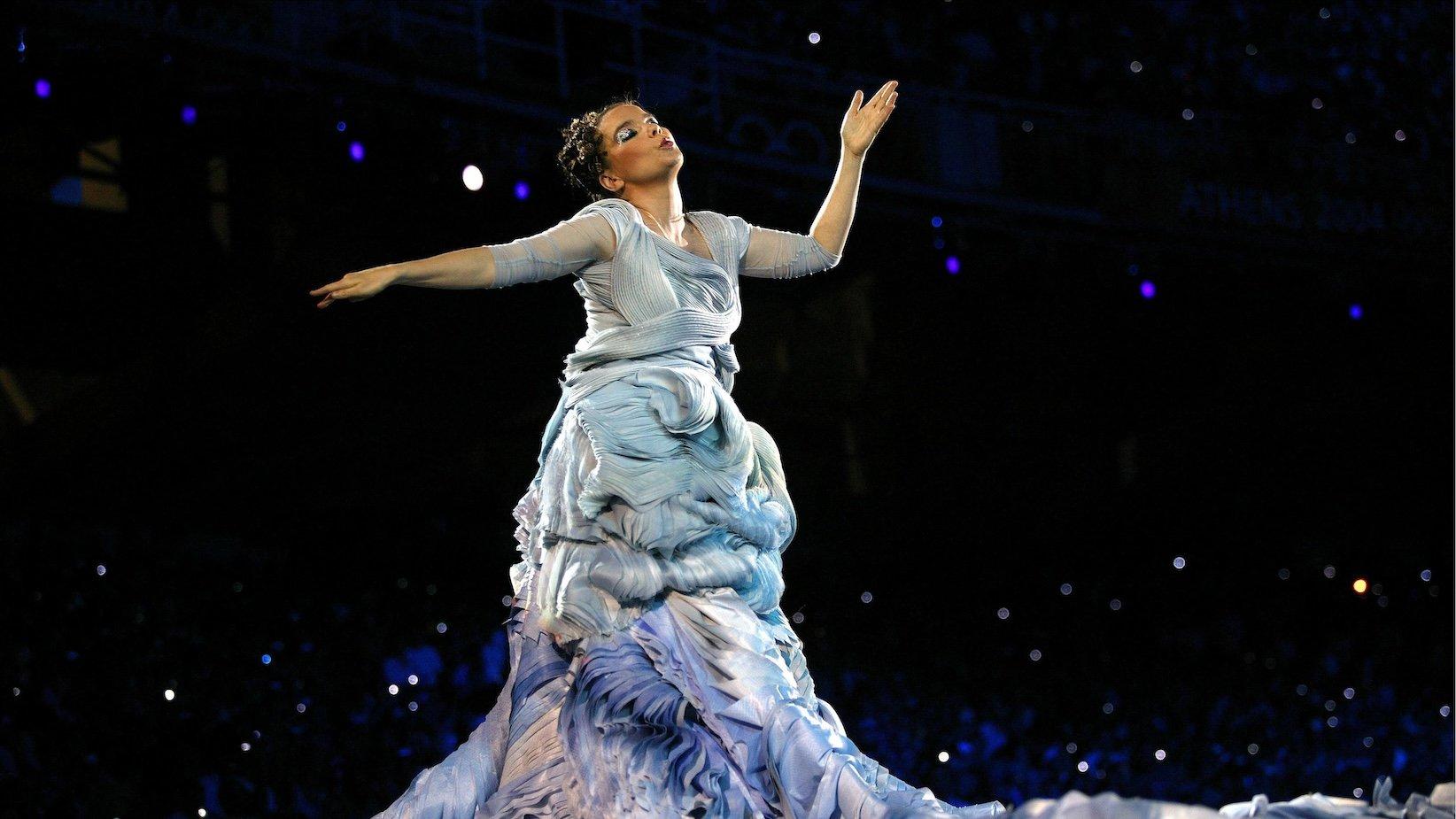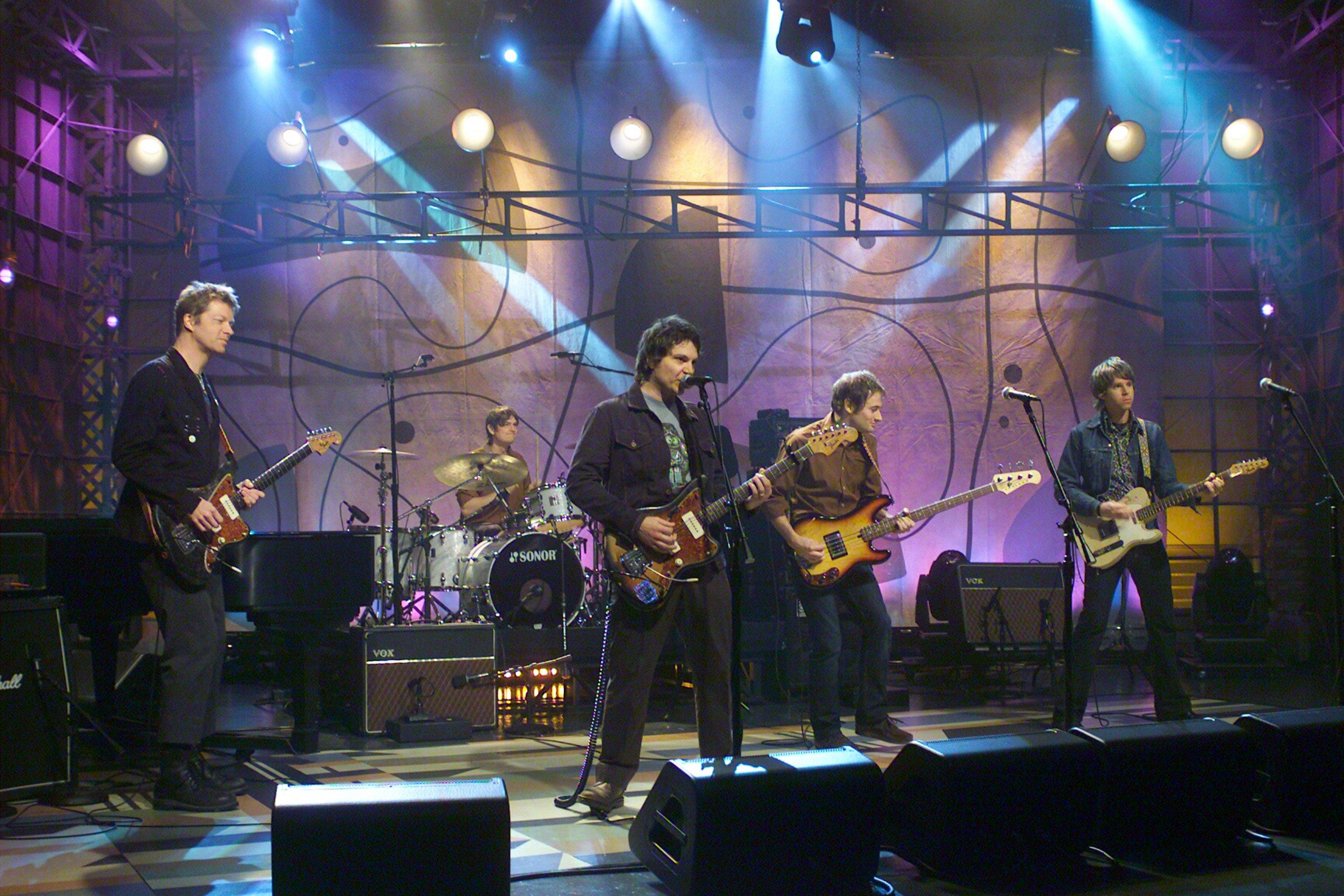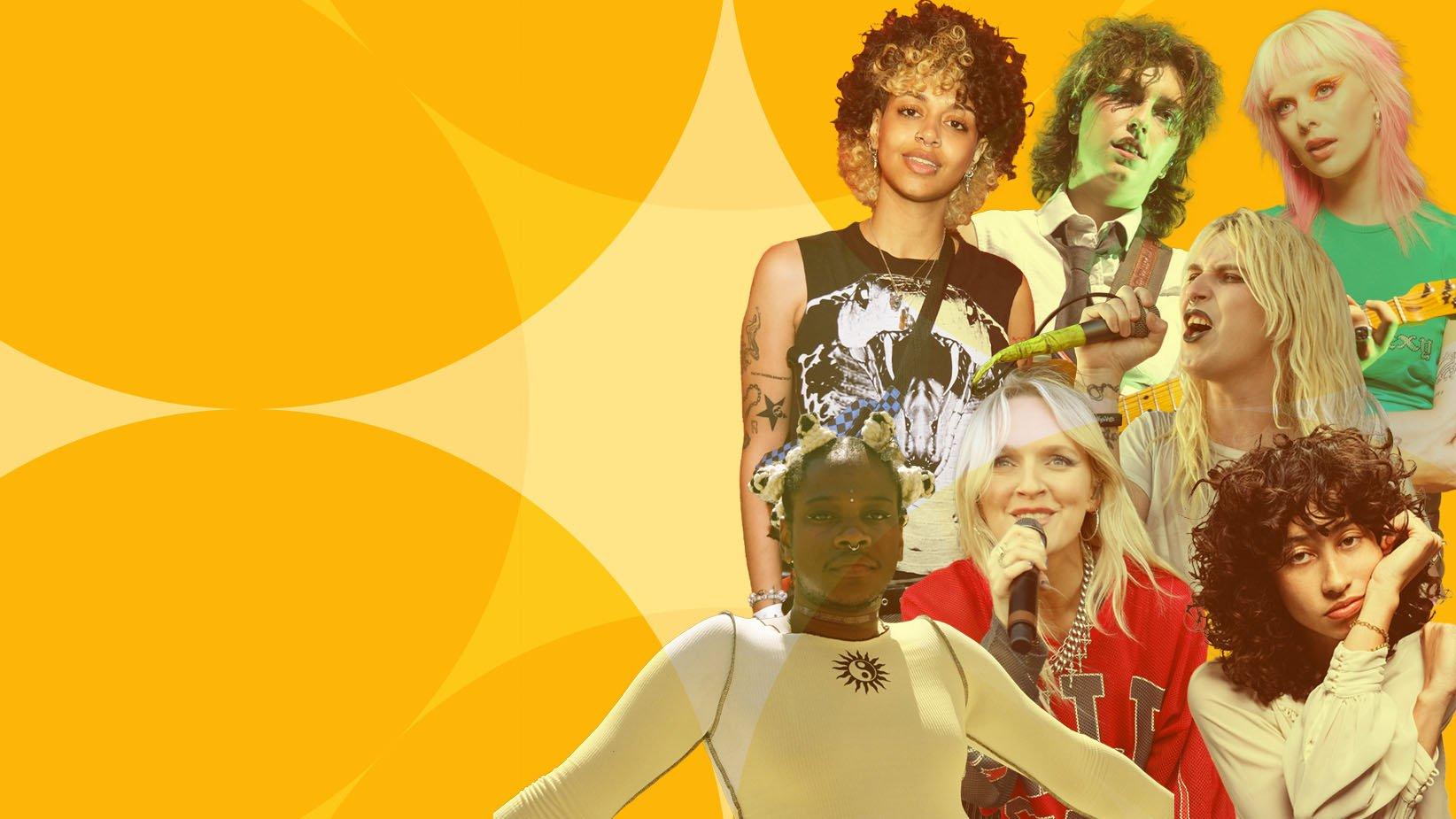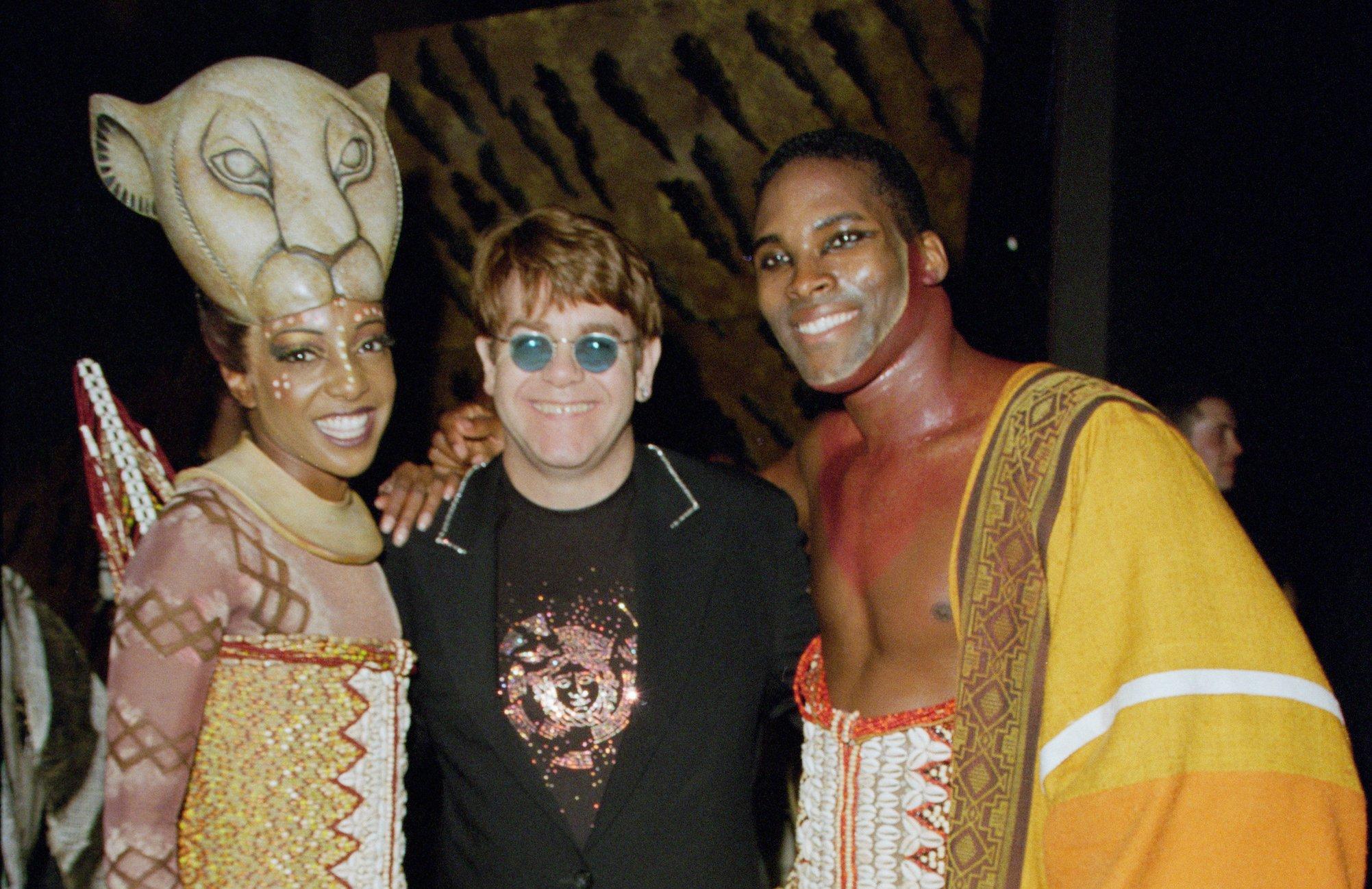"That always confused me, when they were like, 'This is the most experimental album ever!'" says Mikael Jorgensen, Wilco's keyboardist of two decades, with a chuckle. "I mean, what's your reference point here? Have you not listened to Whitehouse, or any music that's reviewed in The Wire?"
Jorgensen's talking about 2004's A Ghost is Born — Wilco's jagged, spectral follow-up to their masterpiece Yankee Hotel Foxtrot, and his first album as part of the group. (For the attendant tour, guitarists Pat Sansone and Nels Cline would join, and cement their lineup that remains to this day.)
Indeed, critics and fans have always discussed A Ghost is Born with hushed tones — characterizing it as the experimental peak of the ex-"alt country" outfit. Some of its dark reputation is deserved, albeit tiresome to recapitulate: frontman Jeff Tweedy was at the nadir of his opiate addiction — a rough patch that he survived, and has discussed publicly, repeatedly, at length.
Plus, certain moments on A Ghost is Born undoubtedly represent their avant-garde apogee. It's the only Wilco album with Tweedy as the lead guitarist, which alone makes it singular; Cline is a masterful player, but Tweedy's skronky, untechnical, Lennon-meets-Shakey attack was captivating in its own way.
Tweedy is arguably responsible for A Ghost is Born's most extreme moments. He was famously painting pictures of his panic attacks and migraines — the former in the guitar crescendo of "At Least That's What You Said," the latter in the atonal, 12-minute coda of "Less Than You Think."
In short, A Ghost is Born is considerably out there. But to solely paint it with that broad brush would do it a disservice: the album also features some of Wilco's gentlest, prettiest material — as well as mellow gems like "Hummingbird," a skipping stone of a piano-led pop song.
A Ghost is Born was met with critical acclaim upon release on June 22, 2004, and even won Wilco their only GRAMMY to date — for Best Alternative Music Album. (At press time, they've been nominated for seven.) To ring in its 20th anniversary, here's a track-by-track breakdown of the album.
"At Least That's What You Said"
When you consider the enveloping, sound-effects-laden Yankee Hotel Foxtrot, it's still bracing to hear A Ghost is Born stir to life like a sleeping beast — just a little bit of electric guitar and piano rumbling around.
Eventually, Tweedy's near-silent, mumbled confessional erupts into a twisted, serrated, sparks-emitting Tweedy solo. (Seriously: we celebrate his songwriting, his wit, his authorial voice, and so much more: give the man his flowers as an electric guitarist.)
Read more: Jeff Tweedy & Cheryl Pawelski Sit Down For "Up Close & Personal" Chat: Yankee Hotel Foxtrot, Writing One Song & More
"'Hell is Chrome' — that was really powerful in the studio, to record that," drummer Glenn Kotche tells GRAMMY.com. (A Ghost is Born was his second album with Wilco; he had joined for Yankee Hotel Foxtrot.)
That power was the quiet kind: "Hell is Chrome" is an eerie, spare, piano-led lament; each twist of Tweedy's tenor is goosebumps-inducing. And, accordingly, that howling first note of his guitar solo hits like a blast of a freezing draft.
"Spiders (Kidsmoke)" is another recording where I feel like you can hear my condition pretty clearly," Tweedy wrote in his 2018 memoir, Let's Go (So We Can Get Back).
As he explains, the mother of all migraines was squeezing his skull; they had to strip the composition to basics just so he could get through it. "This allowed me to just recite the lyrics and punctuate them with guitar skronks and scribbles to get through the song," he recalled, "without having to concentrate past my headache too much."
A spiky motorik jam reminiscent of Can or Neu!, "Spiders (Kidsmoke)" is Wilco's first great extended guitar workout — which, with the arrival of Nels Cline, would gather good company.
The hushed "Muzzle of Bees" tumbles forth so naturally, so patiently, that you wouldn't know it was one of the hardest to record.
"That was a tough nut to crack, for reasons that are still unclear," Jorgensen says with a laugh. "We did take after take, and version after version, and it kept changing, and the arrangement kept moving."
Whatever extra effort was required paid off: "Muzzle of Bees" is enchanting — with images of a random-painted highway, and treebanks playing catch with the sun. And the instrumentation sounds lush yet hardly there at all — like a treebranch scraping your window.
Critics love to compare "Hummingbird" to the works of Randy Newman, which isn't that far off — a character study shot through traditionalist pop.
The vivid details — "a fixed bayonet through the great Southwest," "the deep chrome canyons of the loudest Manhattans" will take you away, but it's the elegaic chorus that resonates most: "Remember to remember me/ Standing still in your past/ Floating fast like a hummingbird." And with that, a sweet, aching fiddle solo brings it home.
Read More: Jeff Tweedy's Blurred Emotions: Wilco’s Leader On Cruel Country & Songwriting As Discovery
Few songs capture aimless, urban wandering like "Handshake Drugs," a choogling, circuitous highlight; it feels like two parallel and inverted arrows, facing forward and backward.
Lyrically, Tweedy shows his mastery of conversational, sneakly profound, ouroboros-like bars: "It's OK for you to say what you want from me/ I believe that's the only way for me to be/ Exactly what you want me to be." A cracked Midwestern-ness that typifies Wilco.
One of the out-and-out prettiest songs on the album, "Wishful Thinking" should get more love in the Ghost discourse.
"Fill up your mind with all it can know/ Don't forget that your body will let it all go," a devastated-sounding Tweedy sings in the verse. And the chorus simmers down to a heartbeat-like pulse: "Open your arms as far as they will go/ We take off your dress."
A little more lightweight than other Ghost songs — but variety and dynamics are what make the extreme moments pop. The meaning of "Company in My Back" is elusive, but that earworm of an arpeggio, along with Kotche's sparkling hammered dulcimer, make it fit the album like a glove.
"I've always had a particular fondness for 'Company in My Back,'" Jorgensen says, before directing readers to the half-speed, instrumental outtake: "That was just such a wonderful, hot, mysterious universe of sound."
Wilco get a battery in their back for "I'm a Wheel," a snotty blast of post-punk that points to gonzo future rockers like "Random Name Generator." Come for Tweedy rhyming "nein" with "nine," stay for "I invented a sister/ Populated with knives." With all he was going through, it's good to hear him having fun.
Read more: 28 Essential Songs By Wilco
Tweedy returns to the instrumental palette of "Hummingbird" to ponder matters of the soul. Before concluding "Illiterati lumen fidei/ God is with us every day/ That illiterate light/ Is with us every night."
When "Theologians" blasts off, it feels like the thesis of the album: "No one's ever gonna take my life from me/ I lay it down/ A ghost is born/ A ghost is born/ A ghost of the born."
"I thought I was going to die," Tweedy wrote in his memoir. "I mean that in all seriousness… Every song we recorded seemed likely to be my last. Every note felt final." Yet "Theologians" pulses with life — and resolve.
Most talk about "Less Than You Think" naturally zeroes in on that alien, mechanical drone, which subsumes most of its runtime.
"Even I don't want to listen to it every time I play through the album," Tweedy once said. "But the times I do calm myself down and pay attention to it, I think it's valuable and moving and cathartic. I wouldn't have put it on the record if I didn't think it was great."
Partly why it hits so hard is that the preceding music is so magnificent — a devastated, naked ballad with Kotche's hammered dulcimer sparkling overhead.
"I wanted to make an album about identity, and within that is the idea of a higher power, the idea of randomness, and that anything can happen, and that we can't control it," Tweedy said in the same interview. Which is exactly what "Less Than You Think" communicates.
Wilco being Wilco, A Ghost is Born doesn't crumple into a heap: it finds a ray of hopeful light. The tumbling rocker "The Late Greats" turns over rock history to examine the underside:
"The best band will never get signed/ The K-Settes starring Butcher's Blind," Tweedy sings. "They never even played a show/ You can't hear 'em on the radio." And, as he concludes before the triumphal little finale: "The best song will never get sung/ The best laugh never leaves your lungs."
Looking back, "It's kind of hard to quantify," Jorgensen says. "Is it a rock record? Yeah. Is it a folk-rock record? Yeah, I guess. Is it an experimental album? There's certainly a component of that. It is all these things, but not one thing.
"So, I guess I identify with that part of it," he concludes. "It's a constellation." Indeed, across A Ghost is Born, there's a star for everyone: for its 20th anniversary, dust off the album, lie awake, and count them.
Songbook: A Guide To Wilco's Discography, From Alt-Country To Boundary-Shattering Experiments





















